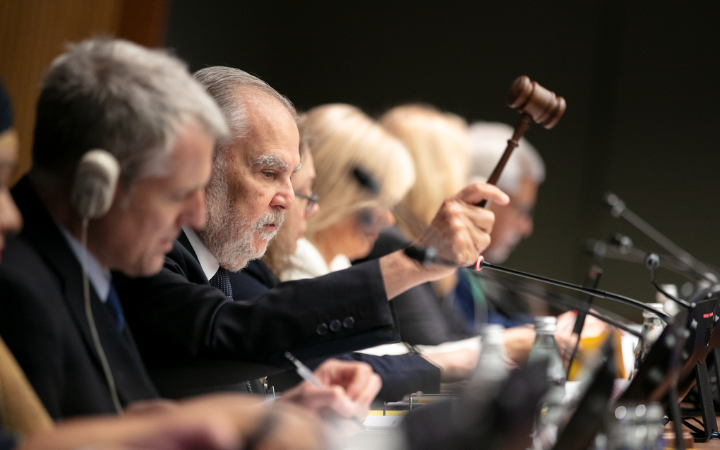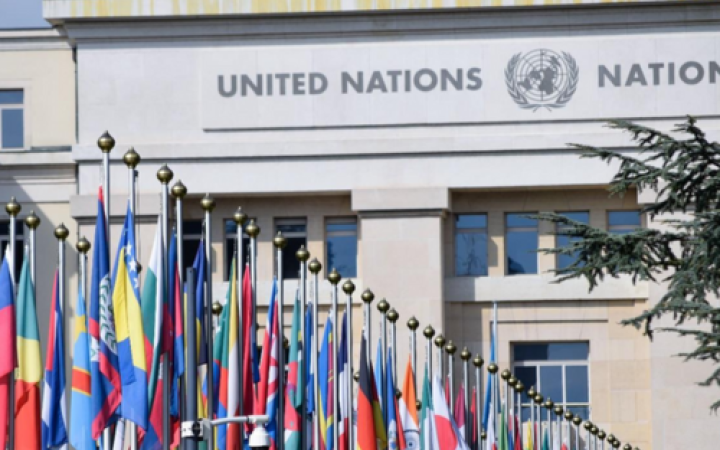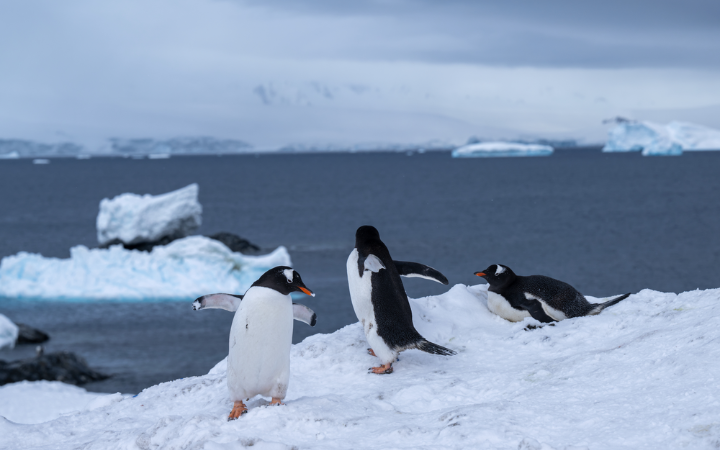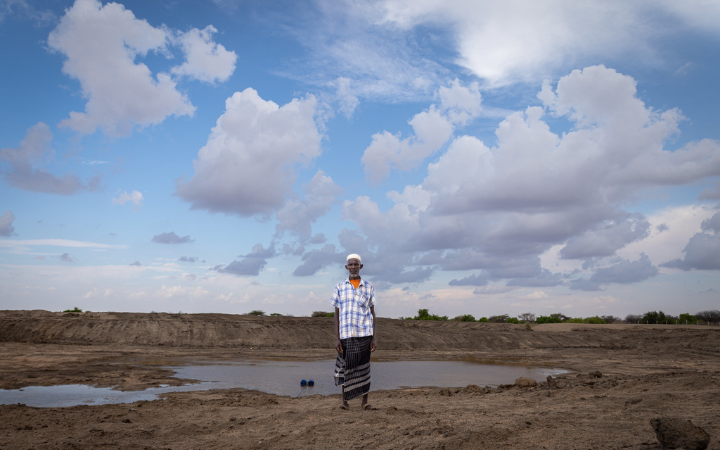Discover UNITAR's 5 engaging International Law Courses, available in both self-paced and interactive webinar formats. These courses empower you with essential knowledge to grasp the significance of international law, the pivotal role of international organizations, and critical analysis skills, enabling you to interpret contemporary cases and apply rules in areas like the Law of Treaties and International Environmental Law.
- Our Self-Paced Track courses offer flexibility in learning through interactive lessons and multimedia materials.
- Our Webinar Track courses provide an extended experience with live Q&A sessions led by senior experts in the field.
Law of Treaties
The International Law of Treaties is a set of international principles and rules regulating the conclusion procedure of treaties, as well as the issues of operation, amendments and modifications, termination, suspension and invalidity of treaties. For those involved in the drafting, negotiation and conclusion of international treaties, a sound knowledge of the Law of Treaties is indispensable. Efficient implementation and application of international legal norms is impossible without knowing the essentials of the International Law of Treaties. UNITAR’s course on the Law of Treaties is designed to cover both the theoretical and the practical aspects of this subject, starting with the basic notions, sources, subjects, principles, and scope of application of conventions forming the base of the Law of Treaties.
Self-Paced Track
- 5 Jan - 5 April 2026, Deadline 4 Jan 2026.
- 6 April - 5 July 2026, Deadline 5 April 2026. Register here
- 6 July - 4 Oct 2026, Deadline 5 July 2026. Register here
- 5 Oct - 3 Jan 2027, Deadline 4 October 2026. Register here
Webinar Track
- 2026 Spring Edition: 25 May – 14 June 2026: Webinar Friday 12 June, 10:00 – 12:00, Deadline 17 May 2026. Register here
- 2026 Fall Edition: 02 – 22 November 2026: Webinar Friday 20 November, 10:00 – 12:00 (TBC), Deadline: 25 October 2026. Register here
International Law
The subject of international law brings a lot of concepts to mind, from war and settlement of disputes between States, protection of the environment, responsibilities and obligations, to human rights protection between citizens, refugees of different States and corporations. Globalization has forced us to interact with each other, making it essential to have common rules to guide and sustain relationships (of trade, investment, technology, etc.) between individuals and States from different regions and continents. Now, many of domestic laws are highly influenced and molded by the rules of international law. International law provides mandatory principles, norms and rules that regulate the relations between States as well as with other non-State actors, like international organizations and individuals.
Self-Paced Track
- 5 Jan - 5 April 2026, Deadline 4 Jan 2026.
- 6 April - 5 July 2026, Deadline 5 April 2026. Register here
- 6 July - 4 Oct 2026, Deadline 5 July 2026. Register here
- 5 Oct - 3 Jan 2027, Deadline 4 October 2026. Register here
Webinar Track
- 2026 Spring Edition: 2 – 22 March 2026: Webinar on Friday 20 March, 10:00 – 12:00. Deadline 1 March 2026. Register here
- 2026 Fall Edition: 31 August – 20 September 2026: Webinar on Friday 18 September, 10:00 – 12:00 (TBC). Deadline 30 August 2026. Register here
Law of International Organizations
International organizations are playing an increasingly important role in the international legal order. They are active in virtually all fields of human activity, they regularly conclude international treaties and continuously interact with other actors of international law. Nowadays, they wield growing normative powers. For those working for or dealing with international organizations, a sound understanding of the law of international organizations thus appears indispensable.
Self-Paced Track
- 5 Jan - 5 April 2026. Deadline 4 Jan 2026.
- 6 April - 5 July 2026. Deadline 5 April 2026. Register here
- 6 July - 4 Oct 2026. Deadline 5 July 2026. Register here
- 5 Oct - 3 Jan 2027. Deadline 5 October. Register here
Webinar Track
- 2026 Spring Edition: 20 April – 10 May 2026: Webinar on Friday 8 May, 10:00 – 12:00 (TBC), Deadline 12 April 2026. Register here
- 2026 Fall Edition: 28 September – 18 October 2026: Webinar on Friday 16 October, 10:00 – 12:00 (TBC), Deadline 20 September 2026. Register here
International Environmental Law
Multilateral Environmental Agreements (MEAs) are the predominant legal method for addressing transboundary environmental problems. Adopted by States, MEAs are standard-settings instruments for effective global environmental protection. However, nowadays some States, particularly least developed and developing countries, face the challenge of implementing over 300 MEAs due to limited technical, financial and human resources. This course will provide you with the basics of International Environmental Law (IEL) by identifying its sources and fundamental principles, the law-making process, its main actors, as well as the implementation and compliance procedures needed to understand and apply Multilateral Environmental Agreements.
Self-paced Track
- 5 Jan - 5 April 2026, Deadline 4 Jan 2026.
- 6 April - 5 July 2026, Deadline 5 April 2026. Register here
- 6 July - 4 Oct 2026, Deadline 5 July 2026. Register here
- 5 Oct - 3 Jan 2027, Deadline 4 October 2026. Register here
Techniques and Procedures of International Environmental Law
For the adequate implementation of and compliance with MEAs at a national level, there is a need to raise awareness on International Environmental Law (IEL) and develop specific capacities for its implementation at the national level. This course explores the the technical and procedural aspects of the different mechanisms made available in international environmental law to facilitate the creation and implementation of sound environmental norms; from the regulatory and economic instruments used by policy-makers, to the role of Environmental Impact Assessments and public participation in environmental decisions.
Self-paced Track
- 5 Jan - 5 April 2026, Deadline 4 Jan 2026.
- 6 April - 5 July2026, Deadline 5 April 2026. Register here
- 6 July - 4 Oct 2026, Deadline 5 July 2026. Register here
- 5 Oct - 3 Jan 2027, Deadline 4 October 2026. Register here
International Humanitarian Law
War remains a matter of great concern to humanity. Recent conflicts have demonstrated that the ravages of war continue to have a devastating impact especially on the civilian population. War might be the “end of the law” as one said, but International Law is not silent on armed conflicts. From its conception in 1859 on the battlefield of Solferino to contemporary warfare, modern International Humanitarian Law (IHL) has been confronted with significant challenges. Since the times of horses and bayonets to drones and other ‘Lethal Autonomous Weapons System’ (the so-called “killer robots”), the IHL has always had the purpose of regulating the means and methods of warfare in order to limit human suffering. The development and sophistication of weapons has made it paradoxically problematic to distinguish between civilians and combatants in order to better protect the former. In addition, the proliferation of non-international armed conflicts (civil wars) and the emergence of new forms of armed conflicts, i.e. the “war on terrorism”, pose new challenges to the protection of civilian persons and goods.
- 2026 Spring Edition: TBC.
- 2026 Fall Edition: TBC.
Human Rights, Environmental Protection, And Climate Change
This tutor-facilitated course introduces participants to the application of human rights to environmental issues and the procedural and substantive obligations relating to the environment, covering Principle 10 of the Rio Declaration, as well as the obligations relating to vulnerable groups. Through examples of constitutions that have incorporated a right to a healthy environment, good practices in procedural and substantive environmental protection, as well as good practices in the protection of groups particularly vulnerable to environmental harm, participants will understand how the relationship between human rights and environmental protection takes place in practice.
- 9 March 2026 - 29 March 2026, Deadline 1 March 2026. Register here
Inquiries and Support
For more information, kindly contact info.ilp@unitar.org.
Click here for all International Law and Legal Skills programmes








